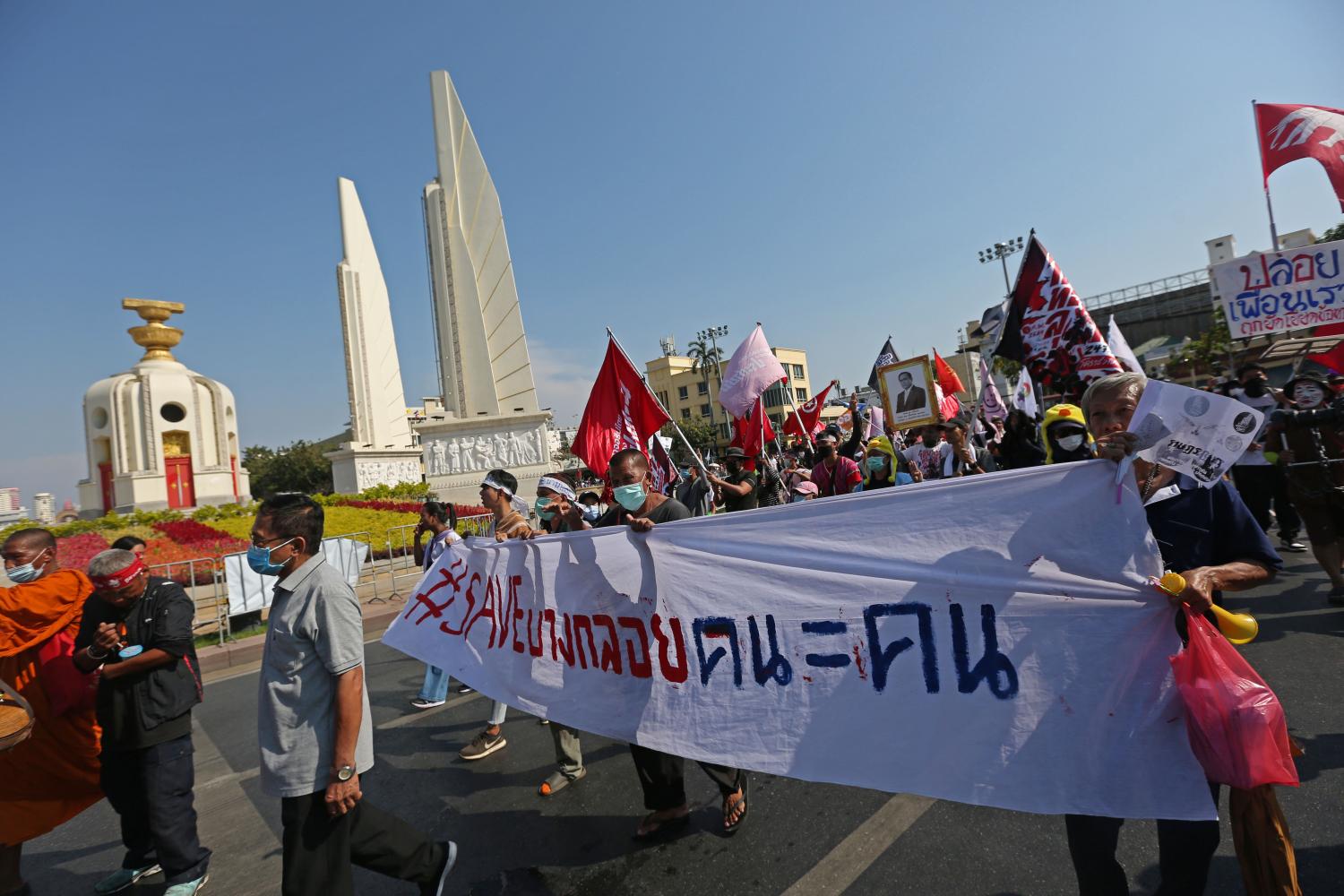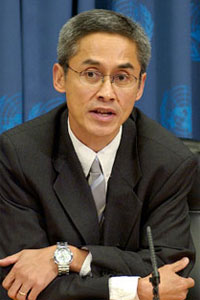
How do we counter massive pollution on land, at sea and in the air? How do we ensure justice for human rights defenders who are attacked when defending the environment? How do we promote more inclusion and participation in decision-making processes?
The 17 United Nations-backed Sustainable Development Goals (SDGs) aim to address these challenges by stipulating that various targets are to be attained from 2015 to 2030. Inevitably, there is special resonance for Asia and the Pacific, the world's most populous region.
A picture of the region not faring too well on the aforementioned issues is emerging. In a recent report released by the UN Economic and Social Commission for Asia and the Pacific (ESCAP), the Asia-Pacific region has been regressing on the issues of climate change (covered by SDG Goal 13) and marine environment (covered by SDG goal 14). More specifically, the Southeast Asia region has been regressing on SDG Goal 16, which encompasses access to justice, participatory decision-making and access to information, which are closely related to environmental protection and human rights.
Today, there are statistics available concerning hundreds of human rights defenders in the region who have been killed or become victims of enforced disappearances and other forms of violence in recent years. A range of court cases has also appeared tantamount to reprisals against human rights defenders, at times instigated by the authorities and non-state actors, particularly the businesses sector, in the region.
These cases are collectively known as "Strategic Litigation against Public Participation (SLAPP)" and they undermine the quest of having justice by silencing advocates.
Even before the adoption of the SDGs, there were two universal principles that guided actions on this front. First, the "precautionary principle", whereby preventive measures should be taken to protect the environment, even if data obtained on issues are not clear or conclusive. The second, the principle of "prior, free and informed consent", in relation to the need to establish dialogues with people, especially indigenous peoples, living in areas where economic projects and programmes might lead to their relocation or displacement -- even if those activities aspire to protect the environment.
Remedies, including compensation, must be provided even if ultimately relocation has to take place after targeted communities have been fully informed and have heard fair public hearings.
SDG 16, in particular, builds on the above developments by calling for data collection and related responses in regards to these concerns. First, on the issue of access to justice, it requires data collection proportionate to a population who has experienced a dispute in recent years and access to formal and informal dispute resolutions. This implies access to not only formal institutions, such as courts, but also informal dispute resolutions, such as mediation.
In between, there is the possible bridge-building in the form of national human rights commissions or the equivalent.
Second, on the issue of inclusive participatory decision-making, there is SDG 16's call to collect information on the proportion of people participating in local and national institutions, such as legislatures and public service, with opportunities for gender equality.
There is also an openness to sound out the number of people who believe that decision-making should be inclusive and responsive as an aperture for democratic aspirations.
And thirdly, on access to information and the protection of fundamental freedoms, data on the number of violations, such as killings and enforced disappearances, is required to be traced and tracked. Data on the number of countries with a constitution and policies guaranteeing public access to information must also be tracked.
To be fair, there is also a positive side to the implementation of these goals with some notable improvements from the region. For instance, about 30 countries in the Asia-Pacific region, such as Indonesia, now have laws and policies guaranteeing access to state-related information, including data on environmental management.
Two countries, Mongolia and the Philippines, have been drafting laws to protect human rights defenders, a move that may benefit those working on environmental protection.
Bangladesh has responded to the Covid-19 pandemic by providing online access to enable quicker judicial resolutions of cases, leading to the release of some 10,000 detainees waiting to be sentenced in recent months.
Lessons are being learnt from other regional initiatives on how to foster regional cooperation on such matters, as seen in the Aarhus Convention from the European region and the Escazu Agreement from the Latin American region, integrating access to justice, participation and information, with due respect to human rights defenders and related redress mechanisms.
What could be some of the windows for the Asean region? Some countries, such as Thailand, have had policies and programmes on environmental management for many years, particularly through its Environmental Impact Assessment (EIA), at times extending to cover health issues, with concomitant inquiries.
There are recurrent issues, however, of the quality of data available and whether it is updated before hearings take place. Such hearings also need to prove that they are not tokenistic and respond to access to information and participation in a subjective manner rather than a formalistic sense.
There are also possibilities for improving access to justice, participation and information at the regional level, particularly to encourage Asean to explore the possibility of having a regional agreement along the lines of the Aarhus and Escazu treaties previously mentioned.
In today's world, there is the added challenge of Covid-19, which has resulted in excessive powers being conferred on or appropriated to the executive branch of governments. National security powers and public health concerns are all too often invoked by the authorities not only to conduct lockdowns for health reasons but also to clampdown on behalf of political self-justification, with freedom of expression and peaceful assembly and association too often arbitrarily constrained.
In other words, it is incumbent upon the UN family and its partners to convey the message that DSGs are at heart not only for development, peace, human rights and freedom but also about democratic space from the local to national levels and beyond.
Vitit Muntarbhorn is a Professor Emeritus at the Faculty of Law, Chulalongkorn University. He was formerly UN Special Rapporteur, UN Independent Expert and member of UN Commissions of Inquiry on human rights. This article derives from his recent presentation at the UN-related conference in Bangkok.
